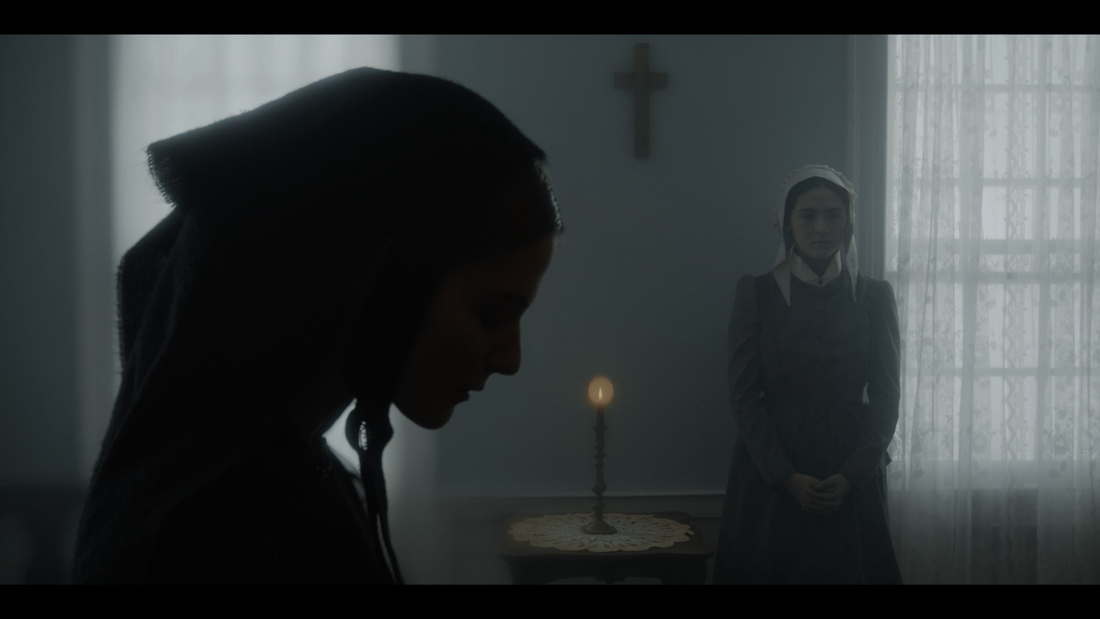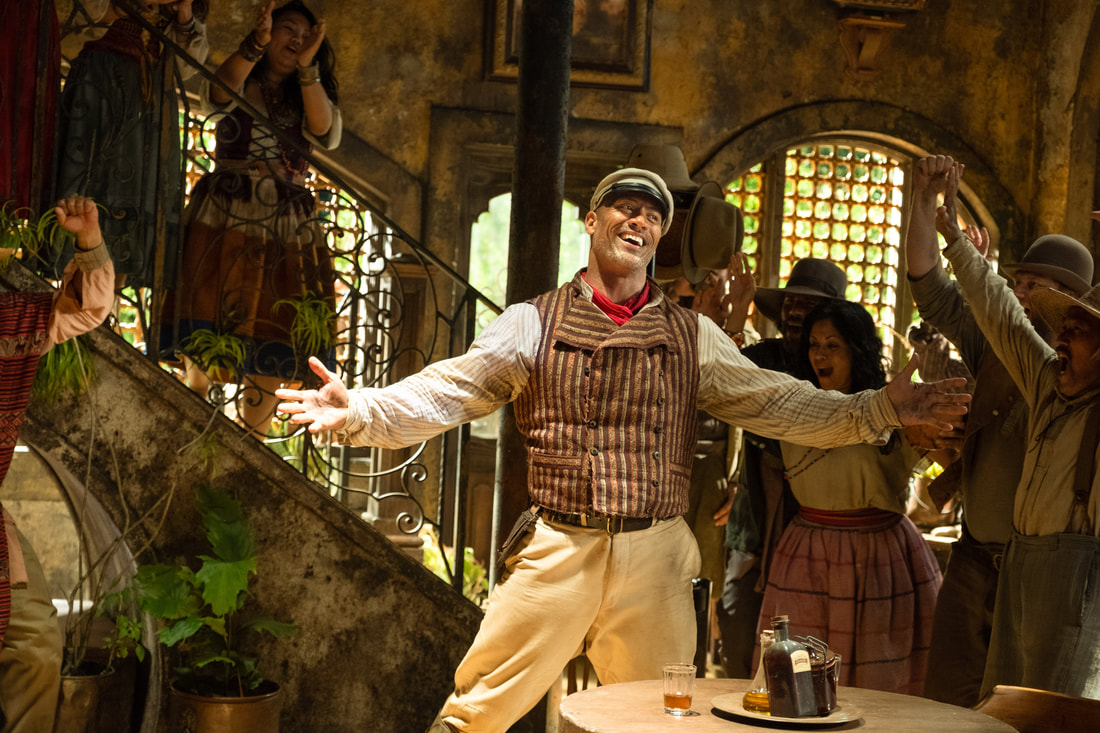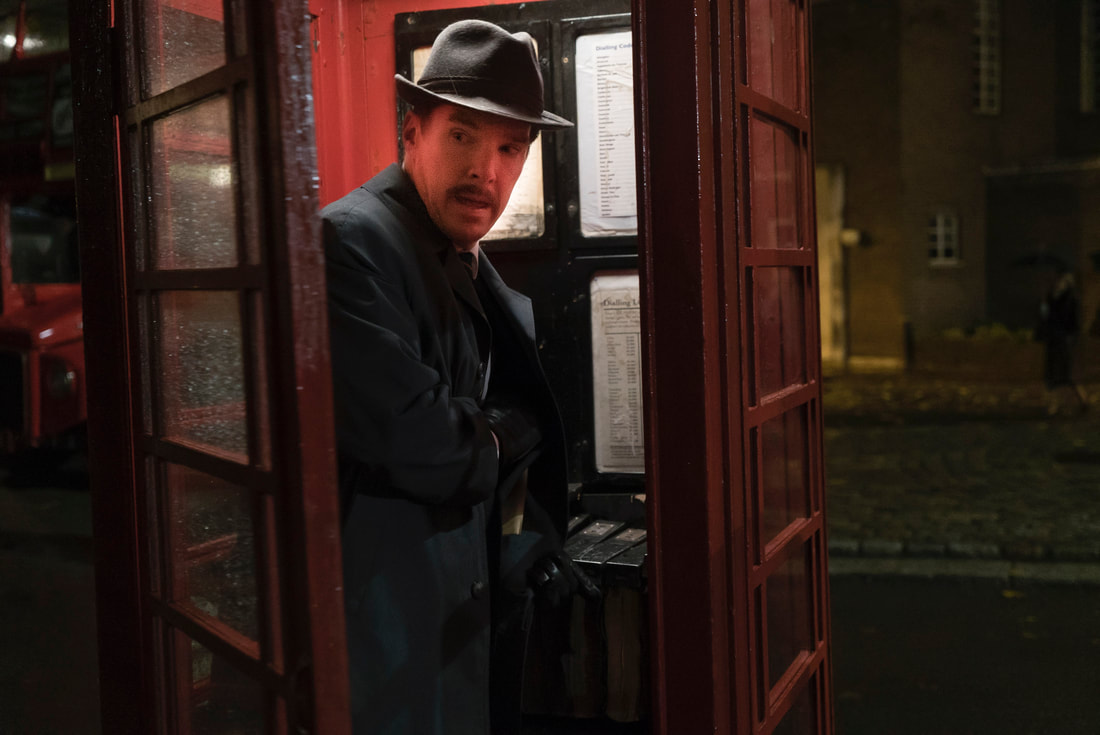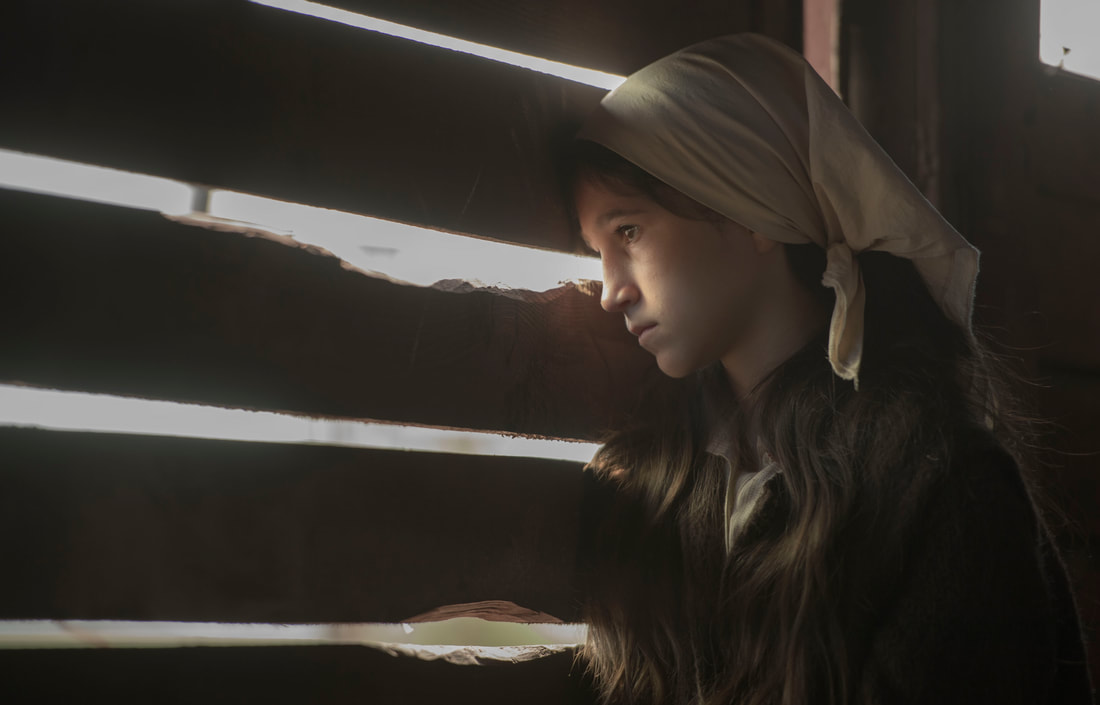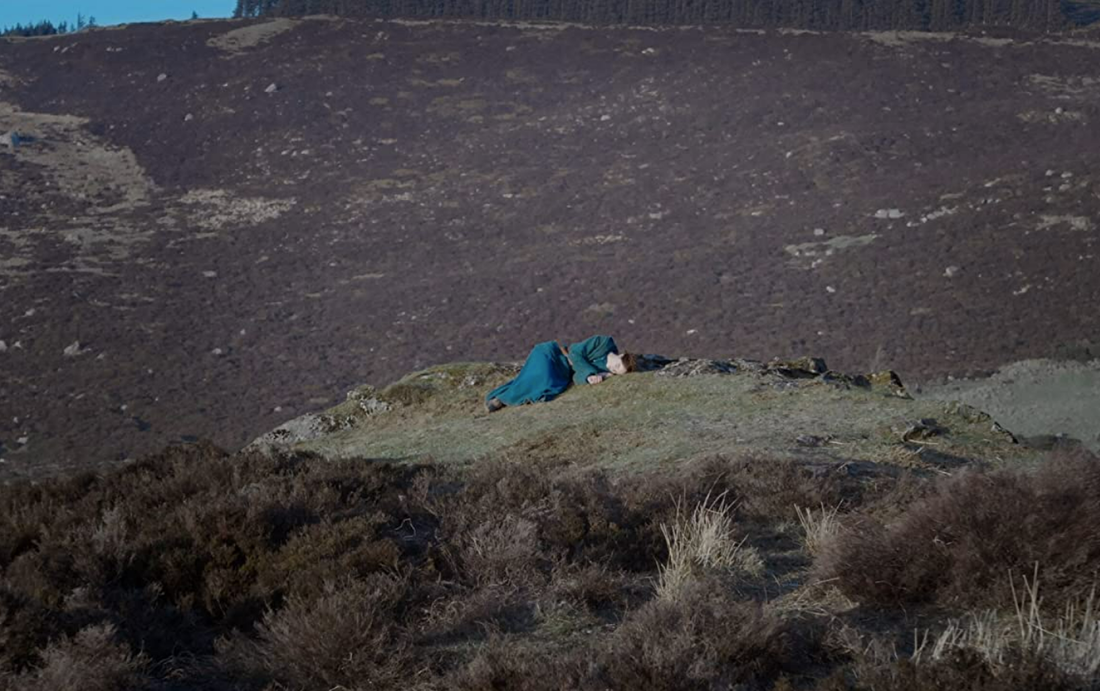|
Originally published on Elements of Madness. Great performers like Aretha Franklin are remembered for much more than their God-given talents. They’re also remembered for their ability to connect with their audience. A good performer will practice and train for years to master their craft, but a great performer will draw on their life experiences to add meaning and depth to their music. Aretha Franklin certainly lived through a full range of human experiences, and she had plenty to share with her audience. So, when Jennifer Hudson took on the challenge of portraying the Queen of Soul in Respect, she did everything she could to capture Aretha’s spirit in a genuine and honoring manner. This fun, flashy, and entertaining musical biopic directed by Liesl Tommy is now available to own on digital, Blu-ray and DVD. The Blu-ray/ DVD combo pack includes five behind-the-scenes featurettes that give us a brief look at the work that went into making the movie.
0 Comments
Originally published on Elements of Madness. You don’t necessarily need complex characters or ingenious plot twists to write an engaging story. With strong imagery and a clear, palpable tone that physically affects your audience, you can transform the most overdone plot into a memorable tale. Writer/director Edoardo Vitaletti demonstrates that kind of storytelling craftsmanship in his feature debut, The Last Thing Mary Saw, which premiered at the 2021 Fantasia International Film Festival. Every aspect of this suffocatingly dark period drama, including its characters and plot, takes a backseat to its tone and mood. As a result, The Last Thing Mary Saw is bursting with palpable dread that will chill you to the bone.
If you’ve ever stood in an hour-long line just to take your kids on a 10-minute amusement park ride, you’re probably wondering how anyone could transform the brief thrills of that attraction into an engaging feature-length movie. But, in 2003, Disney did it as only Disney can, releasing the first of five Pirates of the Caribbean movies that, together, would bring in billions at the box office. Disney has taken another stab at theme park-inspired films with Jungle Cruise, which is based on the Disneyland attraction of the same name. The ride itself was inspired by Disney’s “True Life Adventure” documentaries and has been around since the park opened in 1955. Decades later, Disney now gives the “jungle cruise” concept a new twist under the direction of Jaume Collet-Serra (The Shallows, 2016; Run All Night 2015).
If you go into "The Courier" expecting a feel-good historical drama, you won’t be disappointed.3/15/2021 As literature and media consumers, we’re accustomed to reading stories that fit neatly into one of a few familiar narrative templates. Regardless of genre, even the most unique original screenplays can be reduced down to a basic plot formula that we’ve already encountered a million times (according to author Christopher Booker, there are in fact 7 basic plots, hence the title of his 2004 book). The hero’s journey, for one, is proven cinematic gold, as we’ve seen with the Marvel franchise’s takeover of 21st century cinema. This plot structure not only provides us with a thrilling adventure, but it allows us to indulge in the possibility that we, too, could one day be a hero. With social media personalities plastered all over our screens, it’s nice to escape into a fantasy world where the most ordinary people get the chance to prove their moral strengths. This is the kind of fantasy that screenwriter Tom O'Connor created in his Cold War espionage thriller, The Courier. Working with director Dominic Cooke, O'Connor pulls together a variety of historical sources to craft a classic based-on-true-events story that reminds us why we keep going back to the movies.
Serbia’s official submission for the 2021 Academy Awards, Dara of Jasenovac, reminds us that no matter how many Holocaust films are made, there are important details and individual stories that have not yet been represented on the screen. Directed by Predrag Antonijević, Dara of Jasenovac is the first film about the Jasenovac complex in The Independent State of Croatia during the 1940s, which was run by the fascist Ustase government and used for the systematic murder of ethnic Serbs, Jews, and Roma people. While the film’s protagonist, 10-year-old Dara (Biljana Čekić), is not based on a specific historical person, the filmmakers chose to tell the story from a child’s perspective to emphasize the fact that there were specific camps in Jasenovac for children. The film begins when Dara is first transported to the complex along with her mother, infant brother, and other people from her village. She is subsequently moved through different facilities, gradually coming to understand the evil unfolding around her as those who entered the camp with her are killed one by one. Taking on more responsibility than she should ever have to bear, Dara resolves to do everything she can to keep her brother alive.
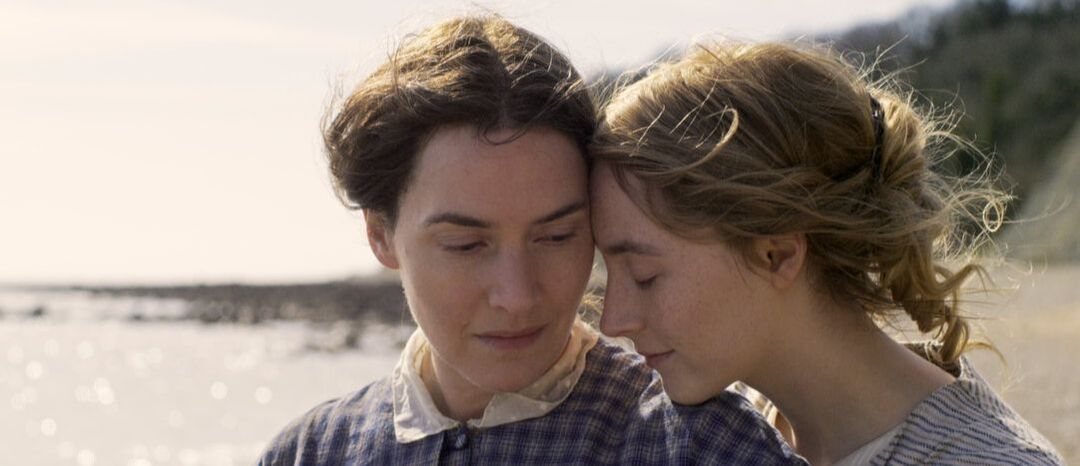 Kate Winslet as Mary Anning (L) and Saoirse Ronan as Charlotte Murchison (R) in AMMONITE. Courtesy of Neon. Kate Winslet as Mary Anning (L) and Saoirse Ronan as Charlotte Murchison (R) in AMMONITE. Courtesy of Neon. With its poster of Kate Winslet and Saoirse Ronan looking wistfully out onto the sea, Francis Lee’s Ammonite, a period romance inspired by the life of English Paleontologist Mary Anning, has certainly set high audience expectations for itself. Although Lee constructs a fictional romance between Anning and her fellow geology enthusiast, Charlotte Murchison, for his film, Ammonite is less about speculating the actual details of Mary’s personal life and more about humanizing this often overlooked pioneer for women in science in a context of connection and intimacy. Although Ammonite more than hits the target with technical mastery and beauty, creating a fictionalized version of Anning whose weathered soul and loneliness bites through the screen, the romance itself lacks the chemistry and nuance that would have taken it to the next level. Originally published on Elements of Madness 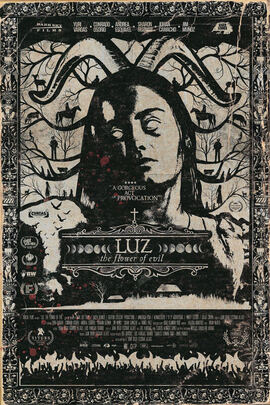 Last year, Ari Aster set the bar high for “daylight” horror films with Midsommar, a terrifying fantasy that casts its disturbing events against a beautiful, blossoming, sunlit backdrop. The genre-play proved to be quite successful for Aster, although the effect is not so much scary as it is genuinely disturbing. Fans of Midsommar will find a somewhat similar effect in Luz: The Flower of Evil, a folk-horror fantasy from writer/director Juan Diego Escobar Alzate. Combining the narrative elements of religious-cult horror films such as The Other Lamb (2019) with the vibrancy of Midsommar, Luz: The Flower of Evil is a stunning and layered exploration of faith, evil, and the search for meaning. Originally published on Elements of Madness If Céline Sciamma’s recently released Portrait of a Lady on Fire paints a picture of female community and camaraderie at its best, honing in on the lives of women as they create space for each other outside of patriarchal society, then Malgorzata Szumowska’s The Other Lamb illustrates the opposite end of the spectrum. With a fervent religious cult as the vehicle for its nightmarish story, The Other Lamb spins a haunting tale about the limitations of female friendship and identity under patriarchal influence. This “tale” is, of course, still an everyday reality for many women, and the horrors of the story will no doubt resonate with a large audience. It’s cathartic and angry, but before releasing its rage, it sympathetically explores touchy subjects like desire, Stockholm syndrome, and the confusing web of signification that fights for control over the female body.
Originally published on Elements of Madness As early as 1945, two years before the liberation of Auschwitz, filmmakers began to grapple with the challenge of preserving Holocaust memory on screen. Directors like Mark Donskoy and Wanda Jakubowska took great risks with their films, The Unvanquished (1945) and The Last Stage (1948), respectively, which were some of the first to depict the mass violence of the Holocaust. Since the release of these early films, directors have continued to use cinema to preserve Holocaust memory and honor victims, survivors, and those who risked their lives to help. With the 75th anniversary of the liberation of Auschwitz on January 27, 2020, it seems there are still more stories to tell about these events, stories and perspectives that have yet to be explored on the big screen. When director Matthew Rosen learned of one such story, that of former president of the Philippines Manuel Quezon and his efforts open the borders of his country to Jewish refugees, Rosen decided to bring the narrative to the screen with his feature film debut, Quezon’s Game.
|
"Our embodied spectator, possibly perverse in her fantasies and diverse in her experience, possesses agency...finally, she must now be held accountable for it." Categories
All
|



